Children with limb loss face many challenges, from medical treatments to learning how to adapt to their new reality. Prosthetic limbs can help restore mobility and independence, but they can be expensive, and many families struggle to afford them. Thankfully, India has several financial assistance programs, government schemes, and non-profit organizations that support child amputees in getting the care and prosthetic solutions they need.
Understanding where to seek help can make a huge difference in ensuring that every child gets the chance to live a full and active life. This article will explore the best financial aid programs for child amputees in India, covering government assistance, non-profit initiatives, and corporate funding options. By the end, you’ll have a clear understanding of how to secure the best support for your child’s prosthetic and rehabilitation needs.
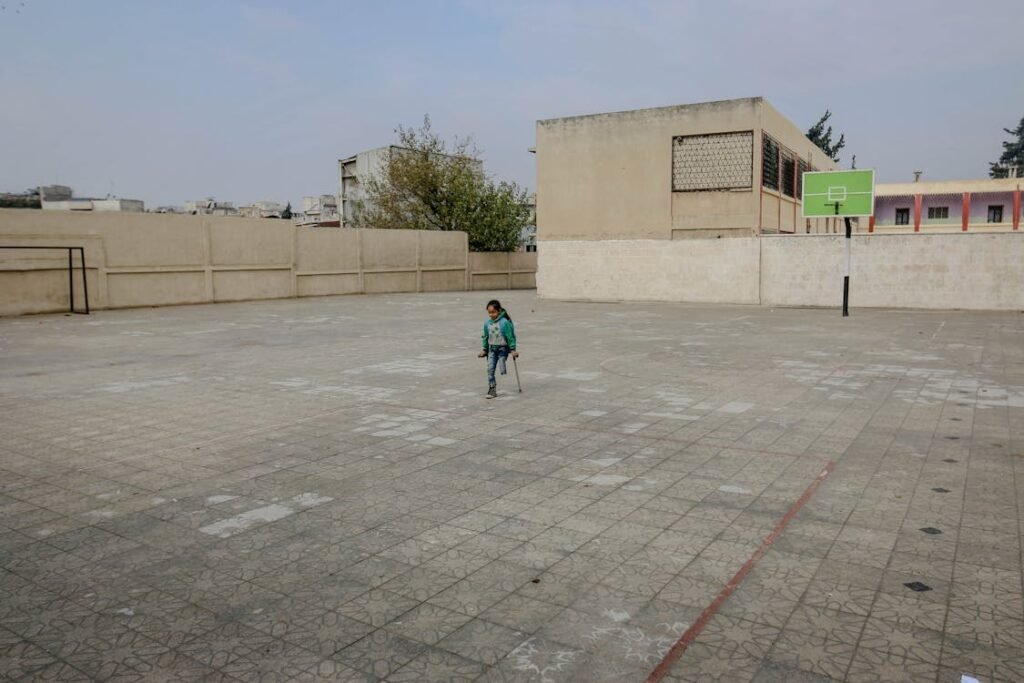
Government Assistance for Child Amputees in India
In India, the government has launched various programs to provide financial help for children with disabilities, including those who require prosthetic limbs.
These initiatives aim to make medical care and assistive devices more accessible to families who may not have the resources to afford them.
The Assistance to Disabled Persons (ADIP) Scheme
One of the most important government programs for child amputees is the Assistance to Disabled Persons (ADIP) Scheme.
This initiative, run by the Ministry of Social Justice and Empowerment, provides financial aid to children with disabilities so they can access prosthetic limbs, mobility aids, and assistive devices at little to no cost.
The primary goal of the ADIP scheme is to ensure that no child is left without essential support due to financial constraints.
Under this program, eligible children receive prosthetic limbs through government-approved centers and organizations that manufacture and fit assistive devices.
The amount of financial aid depends on the child’s family income, with lower-income families receiving full coverage. Parents need to submit necessary documents, including income certificates and medical assessments, to apply for support under ADIP.
Free Treatment and Prosthetics Through Government Hospitals
Several government hospitals and rehabilitation centers in India provide free prosthetic limbs and medical care for children with limb loss.
Hospitals such as the All India Institute of Medical Sciences (AIIMS) and various State Disability Welfare Boards run special programs that offer prosthetic limbs at no cost or at highly subsidized rates.
These hospitals also have specialized physiotherapy units that help children adapt to their prosthetic limbs through rehabilitation programs.
The application process typically requires a referral from a government hospital or a certified disability board. Families may need to visit designated medical centers where the child will be assessed by doctors before being approved for prosthetic support.
The entire process can take time, so it is advisable to start early and follow up regularly to ensure timely assistance.
Insurance Coverage Under the Ayushman Bharat Scheme
The Ayushman Bharat Pradhan Mantri Jan Arogya Yojana (PMJAY) is another government initiative that helps families with the cost of medical treatments, including surgeries and prosthetic fittings.
While this scheme primarily covers hospitalization expenses, some states have included assistive devices under its coverage. Parents should check with local Ayushman Bharat offices to see if their child’s prosthetic limb can be funded through this program.
Since Ayushman Bharat operates through empanelled hospitals, families need to visit a listed healthcare facility and get approval from the authorities managing the scheme.
If approved, the cost of the prosthetic limb may be covered fully or partially, reducing the financial burden on the family.
The Unique Disability ID (UDID) and Its Benefits
The Unique Disability ID (UDID) program, introduced by the Government of India, helps children with disabilities gain access to multiple financial aid programs without having to submit the same documents repeatedly.
With a UDID card, children can be easily identified in government records, making it simpler to receive support for prosthetic limbs, rehabilitation, and medical care.
Families can apply for a UDID card through the official government portal. Once issued, this card can be used to apply for free prosthetic limbs under schemes like ADIP, state disability programs, and hospital assistance initiatives.
The UDID system also ensures that children receive ongoing support as they grow and require new prosthetic fittings over time.
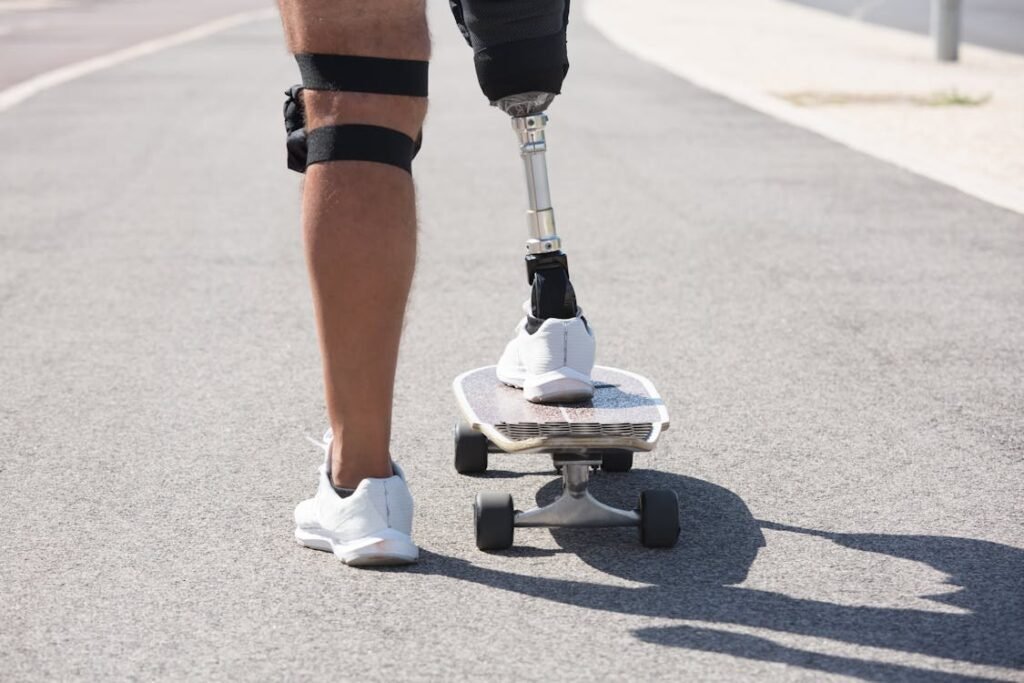
Non-Profit Organizations Supporting Child Amputees
Beyond government programs, several non-profit organizations in India work tirelessly to provide financial aid, prosthetic limbs, and rehabilitation services to children with limb loss.
These organizations rely on donations, corporate partnerships, and volunteer efforts to ensure that no child is left without access to essential mobility support.
Many of them also focus on counseling, education, and skill development, ensuring that children not only receive prosthetic limbs but also gain confidence and independence.
The Jaipur Foot Initiative
One of the most well-known organizations in India providing prosthetic limbs is The Jaipur Foot Foundation, run by Bhagwan Mahaveer Viklang Sahayata Samiti (BMVSS).
This organization has been instrumental in fitting thousands of children and adults with low-cost, high-quality prosthetic limbs at no charge. The Jaipur Foot prosthetic is lightweight, durable, and designed to allow users to walk naturally, making it an ideal choice for active children.
Parents can take their child to Jaipur Foot centers across India, where trained prosthetists assess the child’s needs and provide a prosthetic limb free of cost.
The entire process, from evaluation to fitting, is completed within a few days, allowing children to regain mobility quickly. Some centers even offer follow-up care and adjustments as the child grows.
Narayan Seva Sansthan’s Free Prosthetic Limb Camps
Narayan Seva Sansthan is another leading organization that provides free medical treatment and assistive devices to children with disabilities.
They regularly organize prosthetic limb camps across India, offering free prosthetic fittings, mobility aids, and physiotherapy to children who need support.
These camps are held in major cities as well as rural areas, ensuring that children from low-income families can access high-quality prosthetic limbs without having to travel far.
Parents can register their child for an upcoming camp through the organization’s website or visit one of their centers for direct assistance.
The Rotary Limb Bank
The Rotary International Limb Bank is an initiative by Rotary Clubs across India that provides prosthetic limbs at no cost to children in need.
This program operates through a network of partner hospitals and rehabilitation centers, ensuring that children receive custom-fitted prosthetics based on their individual requirements.
One of the advantages of the Rotary Limb Bank is its focus on high-quality prosthetics that are designed for long-term use.
Children who receive prosthetic limbs through this initiative also benefit from regular check-ups and maintenance support, ensuring that their prosthetic remains in good condition as they grow.
Samphia Foundation’s Specialized Support for Child Amputees
The Samphia Foundation is dedicated to supporting children with limb loss by providing both financial aid and emotional counseling.
This organization understands that losing a limb can be psychologically challenging for children, so they focus not just on providing prosthetic limbs but also on helping children build confidence and social skills.
Through their scholarship programs and mobility assistance grants, Samphia Foundation helps families cover the cost of prosthetic limbs, rehabilitation therapies, and school education for children with disabilities.
They also connect families with specialized rehabilitation centers that offer personalized training for children adapting to a new prosthetic limb.
How to Apply for Assistance from Non-Profits
Each of these organizations has its own application process, but most require parents to provide basic documents, including a disability certificate, income proof, and a doctor’s recommendation for a prosthetic limb.
Some organizations also require families to attend an assessment session where the child’s needs are evaluated before a prosthetic limb is fitted.

The Importance of Rehabilitation and Post-Prosthetic Support
Getting a prosthetic limb is just the beginning of a child’s journey to independence. Proper rehabilitation, physiotherapy, and emotional support are essential to help them adapt to their new limb and regain confidence in daily activities.
Many financial assistance programs in India also cover rehabilitation services, but families are often unaware of these benefits. Understanding the importance of post-prosthetic care ensures that children get the most out of their prosthetic limb and live an active life.
Why Rehabilitation Is Essential
A prosthetic limb is not just a replacement for a lost limb—it requires training and adaptation. Children must learn how to walk, balance, or use their hands effectively with their new prosthetic.
Without proper physiotherapy and training, they may struggle with discomfort, improper gait, or difficulty performing daily tasks.
Rehabilitation programs are designed to teach children how to use their prosthetic limb naturally while improving strength, coordination, and mobility.
Many government hospitals, NGOs, and private rehabilitation centers offer free or low-cost physiotherapy for children with disabilities.
Parents should check with the disability welfare offices in their state to find out if their child qualifies for financial assistance in rehabilitation.
Some programs also provide home-based rehabilitation support, which is helpful for children who live in rural areas with limited access to medical facilities.
Gamified Rehabilitation: Making Adaptation Fun for Kids
For children, traditional rehabilitation exercises can feel repetitive and frustrating. However, modern rehabilitation programs have introduced gamification, where exercises are turned into fun activities to keep children engaged.
At Robobionics, we focus on gamified home-based rehabilitation, where children use interactive games and tasks that improve their motor skills while making the process enjoyable.
Gamified rehabilitation has proven to be highly effective in helping children adapt faster to their prosthetic limbs. When kids associate their exercises with play, they are more likely to engage with their therapy sessions and see better results.
Parents looking for child-friendly rehabilitation programs should inquire whether their prosthetic provider or physiotherapy center offers such services.
Psychological and Emotional Support for Child Amputees
Beyond physical rehabilitation, emotional support is just as important. Losing a limb can impact a child’s self-esteem, leading to social anxiety or feelings of isolation.
Many children struggle with adjusting to how they look and how their peers perceive them. It is crucial to ensure that children receive counseling, peer support, and motivation to help them feel confident and included.
Several non-profits run support groups and mentorship programs where child amputees can meet others who have gone through similar experiences.
Connecting with other children who use prosthetic limbs helps them understand that they are not alone and that they can lead fulfilling, independent lives.
Schools also play a major role in a child’s emotional well-being. Educators should be informed about the child’s condition so they can create an inclusive environment where the child does not feel singled out.
Some organizations even provide teacher training programs to help schools better accommodate children with prosthetic limbs.
Accessing Rehabilitation and Emotional Support Programs
Many of the same non-profits and government schemes that provide financial assistance for prosthetic limbs also offer rehabilitation services and psychological counseling.
Parents should ask their prosthetist or healthcare provider about available programs. Hospitals like AIIMS, Narayan Seva Sansthan, and Rotary Limb Centers offer rehabilitation support, often free of charge for families in need.

Schools and Educational Support for Child Amputees
A child’s education is just as important as their physical rehabilitation when adapting to life with a prosthetic limb. Many parents worry about whether their child will be able to keep up with school activities, participate in sports, or feel included in classroom settings.
The good news is that India has several programs that ensure children with disabilities receive equal opportunities in education, along with financial assistance for assistive devices, scholarships, and inclusive learning environments.
Government Schemes for Inclusive Education
The Sarva Shiksha Abhiyan (SSA) is a major government initiative that ensures free and compulsory education for children with disabilities, including those with limb loss.
Under this program, children with physical disabilities are provided assistive devices, transportation support, and special educators to help them thrive in school.
Many government schools now have barrier-free access, such as wheelchair ramps and accessible classrooms, making it easier for children with prosthetic limbs to move around without difficulties.
Additionally, The Right of Persons with Disabilities Act, 2016 mandates that all schools, both public and private, must provide reasonable accommodations for children with disabilities.
This means that teachers are trained to support children with special needs, and schools are encouraged to make modifications to their infrastructure and teaching methods.
If a child is facing discrimination or a lack of accessibility in school, parents can report the issue to the State Disability Commissioner’s office.
Scholarships for Children with Disabilities
To help families cover the costs of education, various scholarships are available for children with disabilities.
The National Scholarship Portal (NSP) offers financial aid to students from primary school to higher education, ensuring that children with limb loss have the same opportunities as their peers.
Scholarships cover tuition fees, books, transportation, and assistive technology, which can include prosthetic maintenance if needed for school activities.
Non-profit organizations like the Smile Foundation and Amar Seva Sangam also provide scholarships for children with disabilities, focusing on academic excellence and skill development.
Many of these scholarships are merit-based, but some are awarded based on financial need, ensuring that all children have access to quality education regardless of their background.
Sports and Extracurricular Activities for Prosthetic Users
Many parents worry that a prosthetic limb will prevent their child from participating in school sports and extracurricular activities.
However, advances in prosthetic technology have made it possible for children with limb loss to actively engage in sports, dance, and other physical activities.
Schools are now being encouraged to adopt inclusive sports programs, and some even provide customized sports prosthetics for students who show athletic potential.
Organizations like Paralympic Committee of India (PCI) and GoSports Foundation work with schools to support young athletes with disabilities.
They provide specialized training and financial aid for sports prosthetics, helping children develop their athletic skills. If a child is interested in sports but faces challenges due to their prosthetic, reaching out to these organizations can open doors to exciting opportunities.
Creating a Supportive School Environment
Beyond physical accessibility, schools must also focus on social inclusion. Teachers and students play a huge role in making children with prosthetic limbs feel accepted.
Schools that actively promote disability awareness programs help break down stereotypes and encourage an environment where children with limb loss are treated with the same respect as their peers.
Counseling and peer support groups within schools can also make a significant difference. Some organizations conduct workshops in schools to educate students about limb differences, helping to foster understanding and empathy.
When children feel supported in their school environment, they gain confidence, which directly impacts their academic and personal development.
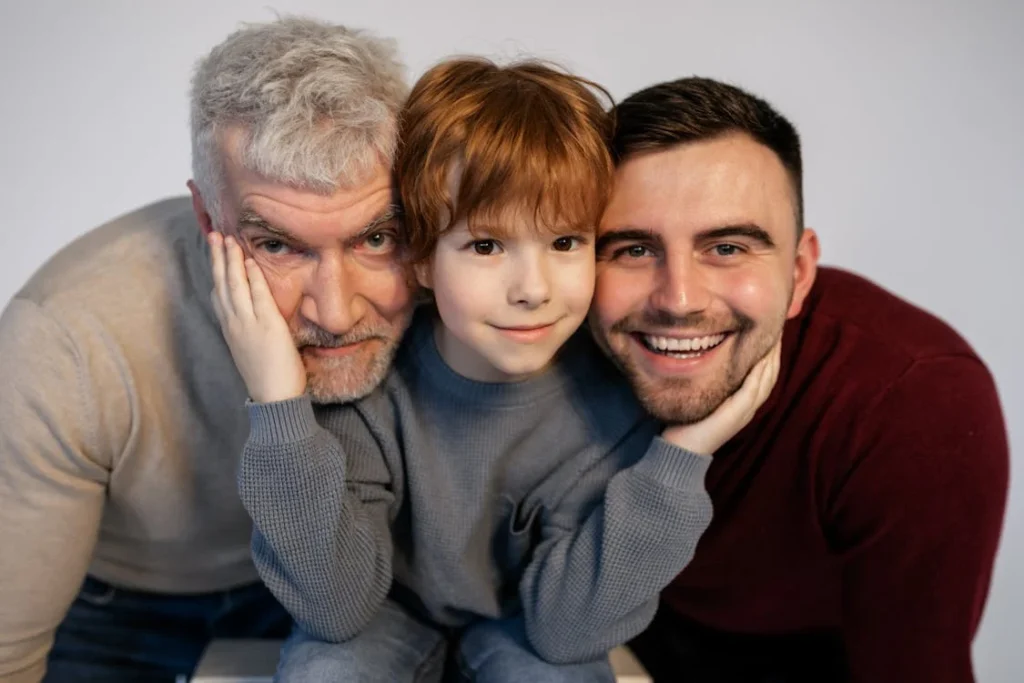
Long-Term Care and Financial Planning for Child Amputees
Ensuring a bright future for a child amputee goes beyond immediate medical and educational support.
Long-term financial planning, prosthetic maintenance, and career development opportunities play a crucial role in helping children with limb loss lead independent and fulfilling lives.
Families must consider ongoing costs such as prosthetic upgrades, rehabilitation sessions, and future educational expenses, making it essential to explore financial planning options early on.
The Cost of Prosthetic Replacements and Maintenance
As children grow, their prosthetic limbs need to be replaced or adjusted to fit their changing bodies. On average, a child will require multiple prosthetic replacements before adulthood.
While many government schemes and NGOs provide initial funding for prosthetic limbs, not all programs cover future upgrades or maintenance costs.
Parents should plan ahead to ensure their child has continuous access to well-fitting and functional prosthetics as they grow.
Some hospitals and prosthetic providers offer long-term prosthetic maintenance plans where adjustments, repairs, and replacements are covered for a set period.
Families should inquire whether their chosen prosthetic provider offers such plans. At Robobionics, we ensure that children using our Grippy™ prosthetic hand receive regular support and maintenance, helping them adapt smoothly as they grow.
Parents should also check if their child qualifies for recurring assistance under schemes like ADIP or disability welfare funds at the state level. Some programs allow beneficiaries to apply for a new prosthetic every few years, ensuring they always have access to an updated limb.
Disability Savings Plans and Insurance Options
Financial security is essential for a child’s long-term well-being, and disability-specific savings plans can provide much-needed stability.
Some banks and financial institutions in India offer special savings schemes for children with disabilities, allowing parents to set aside funds for their child’s medical and educational needs.
These savings plans often provide tax benefits and higher interest rates, making them a smart choice for long-term financial planning.
Families should also explore disability insurance options that cover medical expenses, prosthetic replacements, and rehabilitation services.
Some private insurance providers in India offer customized health policies for individuals with disabilities, covering treatments that may not be included under standard health plans.
Parents should carefully review different insurance options to find a policy that provides the best coverage for their child’s needs.
Career and Vocational Training for a Secure Future
As children with prosthetic limbs grow older, they should have access to career counseling and vocational training programs that help them build skills for future employment.
Several organizations in India focus on providing job training, mentorship programs, and entrepreneurship support for individuals with disabilities. These initiatives ensure that children with limb loss are empowered to pursue careers that match their interests and abilities.
The Skill India Mission and National Handicapped Finance and Development Corporation (NHFDC) offer skill development courses, interest-free loans, and self-employment opportunities for people with disabilities.
By enrolling in these programs, young adults with prosthetic limbs can gain the necessary training to become financially independent.
Some universities and educational institutions also have reservation quotas and scholarships for students with disabilities, ensuring they receive equal opportunities in higher education.
Parents should research disability-friendly colleges and vocational centers that offer accessible learning environments.
Building a Strong Support Network
No child should have to face challenges alone. A strong family, school, and community support system plays a key role in ensuring that child amputees grow up with confidence and resilience.
Parents should connect with support groups, peer networks, and disability advocacy organizations to stay informed about financial aid opportunities, new prosthetic technologies, and social inclusion programs.
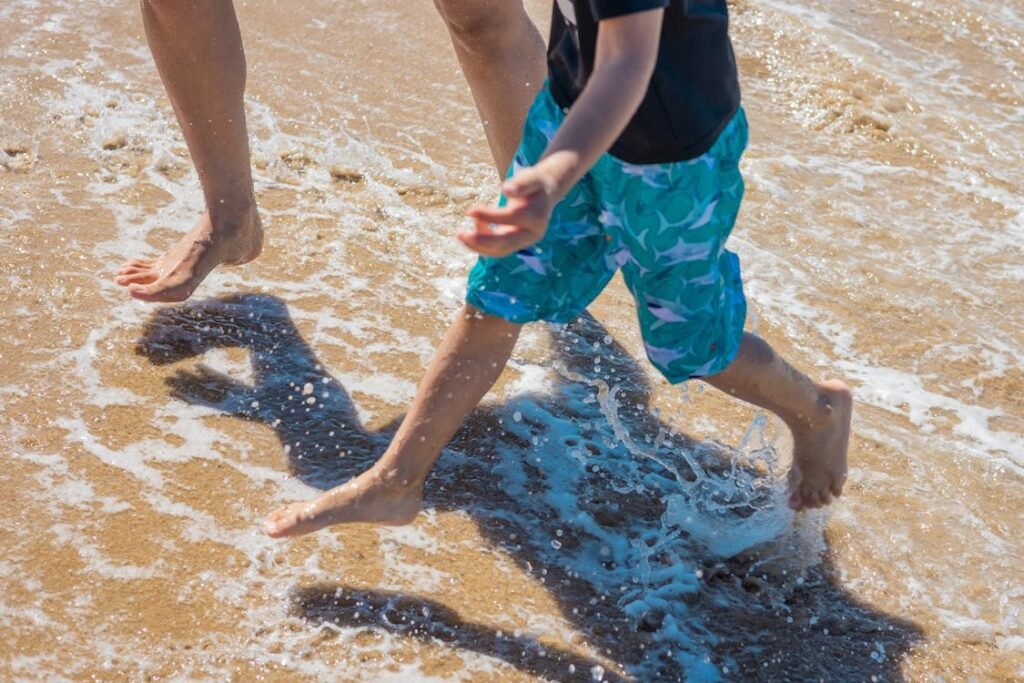
Parental Guidance: Helping a Child Emotionally Adjust to a Prosthetic Limb
Beyond financial and medical support, parents play the most crucial role in helping their child adapt to life with a prosthetic limb.
While physical rehabilitation focuses on functionality, emotional support and self-confidence building are just as important for a child’s long-term well-being.
Many children with limb loss face social anxiety, frustration, or self-doubt, especially when interacting with peers or adapting to daily activities.
Parental encouragement, open communication, and exposure to inspiring role models can help children embrace their prosthetic limb as a tool for independence rather than a limitation.
Encouraging a Positive Mindset
Children often mirror the emotions and attitudes of their parents. If parents treat a prosthetic limb as a natural part of their child’s life rather than a disability, the child is more likely to develop a positive self-image.
Instead of focusing on limitations, parents should celebrate small victories—whether it’s the first time their child takes steps with a new leg or successfully holds a toy with a prosthetic hand.
By framing the prosthetic limb as an empowering tool, children will feel encouraged to explore new possibilities without fear of judgment.
Many prosthetic manufacturers, including Robobionics, design limbs that look modern and stylish, making children feel excited rather than self-conscious about using them.
Letting children choose colors, designs, or accessories for their prosthetic can make them feel more in control and proud of their unique identity.
Talking to Siblings and Peers About Prosthetics
One of the biggest concerns for parents is how their child will interact with siblings, classmates, and friends.
While some children may be naturally accepting, others may be curious or even unintentionally insensitive about the prosthetic limb.
Parents should take the initiative to talk to their child’s peers, teachers, and extended family members to create an understanding and inclusive environment.
Simple conversations that explain how a prosthetic limb works, why the child uses it, and how it helps them do everyday activities can remove the mystery and stigma.
If classmates understand that a prosthetic hand helps a child write, play, and participate in sports, they are less likely to treat the child differently. Schools that promote disability awareness workshops can play a huge role in fostering empathy among students.
Finding Inspirational Role Models
Children often feel more confident when they see others like them thriving. Introducing children to successful amputees, Paralympic athletes, musicians, or professionals who use prosthetic limbs can provide motivation and inspiration.
Watching someone confidently perform daily tasks, excel in a sport, or pursue a dream career with a prosthetic limb helps a child understand that their future is filled with possibilities.
Many organizations and online communities offer mentorship programs where young prosthetic users can connect with others who have faced similar challenges.
Having a mentor who has successfully navigated childhood with a prosthetic limb can make children feel supported and encouraged to pursue their own goals.
Preparing for Life’s Transitions
As children grow, their needs change—whether it’s transitioning to a new school, participating in sports, or preparing for college. Parents should help their child develop problem-solving skills and confidence to handle different situations.
Teaching them how to explain their prosthetic limb to others, advocate for themselves in new environments, and adapt to new challenges will equip them with the independence needed for adulthood.
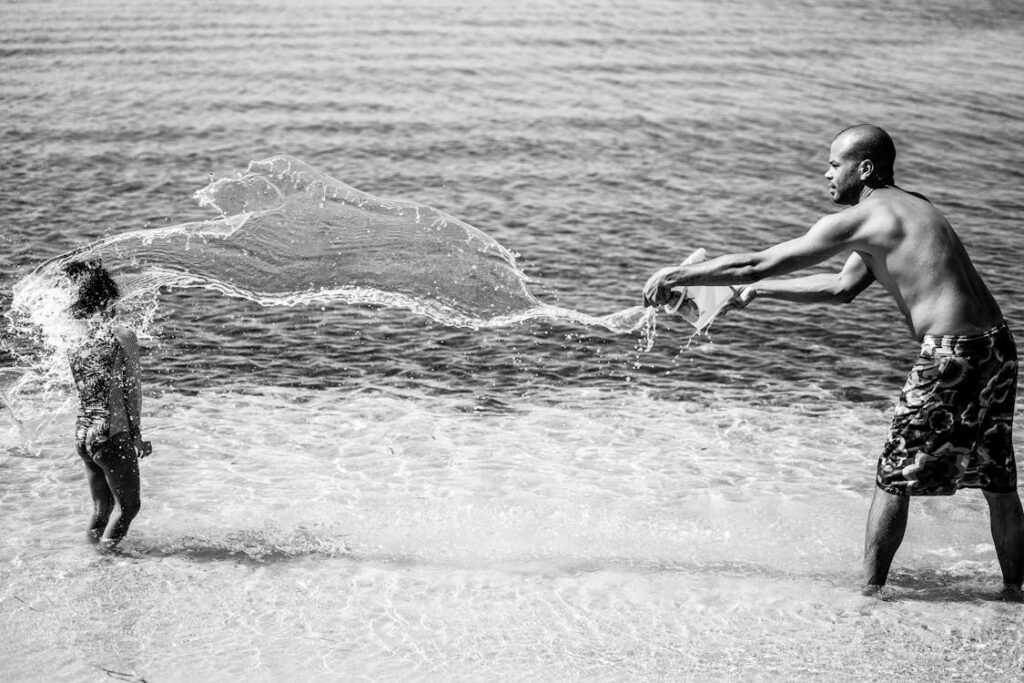
Community Involvement: Creating an Inclusive Society for Child Amputees
While financial aid and rehabilitation programs help child amputees regain mobility, true inclusion happens when society actively supports and accepts them.
A child’s self-confidence and social integration depend not only on family support but also on how schools, neighborhoods, and communities embrace children with limb loss.
By promoting awareness, accessibility, and equal opportunities, communities can ensure that children with prosthetic limbs grow up feeling valued and empowered.
Disability Awareness and Acceptance in Society
One of the biggest challenges child amputees face is social stigma and misconceptions. Many people still see prosthetic limbs as a sign of weakness rather than an enabler of independence.
This mindset can make children feel different or excluded. Schools, public spaces, and workplaces need to normalize the use of prosthetics through education and awareness initiatives.
Community events that showcase the achievements of people with disabilities, inclusive storytelling in children’s books, and media representation of prosthetic users in movies and advertisements can all help change perceptions.
When children grow up seeing prosthetic limbs as a natural part of diversity, they develop empathy and respect for their peers with limb differences.
Making Public Spaces Accessible
Children with prosthetic limbs should be able to explore, play, and participate in all aspects of life without restrictions. Unfortunately, many public spaces, including schools, parks, and sports facilities, are not designed with accessibility in mind.
Communities can advocate for better infrastructure, such as ramps, adapted playgrounds, and prosthetic-friendly sports fields, to ensure that children with limb loss do not feel excluded.
Many organizations work with city planners and policymakers to make urban areas more accessible.
Parents and disability rights groups can actively push for changes that make educational institutions, recreational areas, and public transport more accommodating for children using prosthetics.
Simple adjustments, like handrails, step-free entrances, and inclusive seating arrangements, can significantly improve accessibility.
Encouraging Sports and Recreational Activities
Sports play an essential role in a child’s physical and emotional well-being, and children with prosthetic limbs should have equal opportunities to participate in athletics and playtime.
Unfortunately, many parents hesitate to enroll their children in physical activities due to concerns about safety or lack of adapted equipment.
Organizations like Paralympic India, GoSports Foundation, and Dream a Dream work to train and fund young athletes with disabilities, offering them access to specialized coaching and prosthetic sports gear.
Communities can support these initiatives by organizing inclusive sports events where children with and without disabilities play together, creating an environment where prosthetic users feel welcomed rather than singled out.
Schools and local clubs should also be encouraged to offer adaptive sports programs, including swimming, cycling, and running, where children with prosthetic limbs can build confidence and develop their athletic skills.
Providing financial aid for customized prosthetics for sports, such as running blades or grip-enhanced hands for activities like rock climbing, ensures that no child is held back due to financial limitations.
Strengthening Support Networks for Families
Caring for a child amputee comes with emotional, financial, and logistical challenges, and parents often feel overwhelmed when navigating medical treatments, insurance claims, and school-related concerns.
Parent support groups, online forums, and local meetups offer families a platform to connect, share experiences, and learn from one another.
Many cities now have disability advocacy groups where families can access resources, workshops, and mentorship programs tailored for children with prosthetic limbs.
Having a strong support network helps parents stay informed about new prosthetic technologies, government policies, and financial aid opportunities, ensuring they can provide the best possible care for their child.
Conclusion
Raising a child with limb loss comes with challenges, but financial aid, rehabilitation programs, and community support can make the journey easier. In India, government schemes, non-profit organizations, corporate funding, and crowdfunding provide essential financial assistance for prosthetic limbs, ensuring that no child is left without mobility due to cost barriers. Beyond financial support, rehabilitation, education, and emotional well-being play a vital role in helping children with prosthetic limbs lead confident, independent lives.
Communities, schools, and workplaces must work together to create an inclusive environment where children with limb loss feel accepted and empowered. Encouraging awareness, improving accessibility, and supporting sports and extracurricular activities can help these children thrive without limitations.
At Robobionics, we are committed to helping child amputees regain their mobility and confidence through high-quality prosthetic solutions and rehabilitation support. Whether you need financial guidance, assistance with insurance claims, or access to the latest prosthetic technology, we are here to help.



